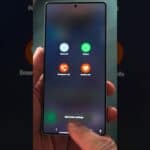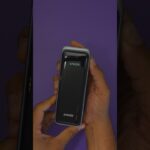The Frustration of Lost Simplicity: A Lament for the Headphone Jack
It was a familiar scene: my girlfriend, preparing for an evening out, frantically searching for her preferred headphones – the basic iPhone earbuds that were once a staple in every Apple box. She needed them to switch seamlessly between her laptop and her iPhone, but alas, the familiar 3.5mm headphone jack was gone, replaced by the lightning port.
The frustration in her voice was palpable. “We make all these changes in the name of advancement, technology that’s supposed to benefit us, but in the end, it just makes things more complicated,” she lamented. “It’s just so frustrating!”
I nodded in agreement. As much as I appreciate the strides in wireless technology, I couldn’t help but empathize with her frustration. Here we were, in a world where a basic, simple convenience – plugging in a pair of headphones – had become a hurdle. The headphone jack, a universal standard, was gone, replaced by a proprietary port that restricted flexibility and forced an additional step.
The False Promise of “Advancement”
We often fall prey to the narrative of technological “progress” equating to advancement. The removal of the headphone jack, however, wasn’t truly an advancement. It was a strategic decision to create a pain point, driving customers towards the latest wireless earbud craze.
We’ve been told that the headphone jack’s removal was necessary for thinner phones, for waterproofing, and for larger screens. But none of these justifications hold water.
- No one ever demanded thinner phones. The pursuit of ever-slimmer devices was a design choice, not a consumer demand.
- Waterproof phones were already a reality, even with the headphone jack. It was a feature that could have been implemented without sacrificing the jack.
- And while larger screens are desirable, it’s difficult to believe that it was an unachievable goal without removing the headphone jack.
The truth is, the headphone jack’s demise was a deliberate decision to force consumers into a specific direction, towards wireless earbuds. And while these devices offer their own benefits, they also introduce new complexities.
The Case for Simplicity
It’s not that I dislike wireless technology – in fact, I’ve been using Bluetooth audio long before the headphone jack became extinct. But I realize that not everyone shares this preference. Some people simply need a simple, reliable way to connect their headphones to their devices. They don’t want to be burdened with pairing, charging, or worrying about battery life. They just want to plug in and go.
The headphone jack provided this essential simplicity. It was ubiquitous, providing a universally understood and functional connection. It was a plug-and-play solution – no fuss, no hassle. And while many consider it a relic of the past, the reality is that it provided a vital connection between our devices and our audio experiences.
The headphone jack was also a testament to a broader issue facing the tech industry: the relentless pursuit of novelty over functionality. We have become obsessed with the latest and greatest, often at the expense of what truly matters: practicality, accessibility, and user experience.
A Choice Not a Mandate
The removal of the headphone jack has created a situation where a basic function has become a luxury. Now, to enjoy a simple wired connection, you need to purchase specialized adapters or USB-C headphones. This unnecessary complexity adds to the frustration of using technology, making it feel unnecessarily cumbersome.
While the transition to wireless audio has undeniable benefits, it should not come at the cost of removing all other options. It is time to embrace a more inclusive approach to technology, one that acknowledges that not everyone wants or needs the latest gadget.
The headphone jack, in its simplicity, offered a valuable alternative, an accessible and easy-to-use solution. Its absence is not indicative of progress but rather a reminder of the dangers of prioritizing novelty over practicality. While the future of technology may be wireless, it should not come at the expense of those who simply seek a universal, functional way to connect their devices.














Comments